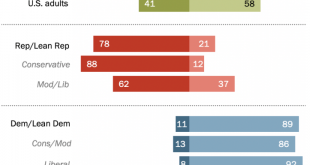from Lars Syll it is not the fact that science occurs that gives the world a structure such that it can be known by men. Rather, it is the fact that the world has such a structure that makes science, whether or not it actually occurs, possible. That is to say, it is not the character of science that imposes a determinate pattern or order on the world; but the order of the world that, under certain determinate conditions, makes possible the cluster of activities we call ‘science’. It does...
Read More »Megadrought coming to US west?
And if it continues to be this dry, it could become the most severe megadrought on this entire chart. “The only reason this drought is lagging behind that 1500s drought is because it’s so young,” Williams said. Via The Guardian comes this article on the current heatwave in the US…personally I have stories ranging from ducks not reproducing because of the heat and drought in Montana to severe water use restrictions in San Jose… What tree...
Read More »Final MS Appeal
I’ve been raising funds for the MS Brissie to the Bay Appeal, and have raised over $2000. I’m making one last push to reach my target of $2500 (I have $231 left to go). As I couldn’t join the official ride, I’ll do one of my own, with a min 50k and max 100k. For every $5 donated, I’ll do an extra km in addition to the initial 50. Share this:Like this:Like Loading...
Read More »Back to the bank?
from Peter Radford Following on from the revelation that our impoverished banks are thinking off penalizing their staff for the rather obvious and rational decision to re-locate, along with their big city wages, to a low cost place to live, we discover that most are now trying to force those recalcitrant workers back to the big city offices. My head is still spinning from the absurdity of the threat to cut the wages of enterprising workers. Just how stupid, mean-spirited, and unnecessary...
Read More »Weekend read – Free speech for me, not you
from Blair Fix They say that Americans love two things: freedom … and guns. The trouble with guns is obvious. The trouble with freedom is more subtle, and boils down to doublespeak. When a good old boy defends his ‘freedom’, there’s a good chance he has a hidden agenda. He doesn’t want freedom for everyone. He wants ‘freedom for himself, not you’. I call this sentiment freedom tribalism. It’s something that, given humanity’s evolutionary heritage, is predictable. It’s also something...
Read More »Open thread June 18, 2021
Tags: open thread
Read More »CO2 since the start of the Industrial Revolution
The amount of carbon dioxide in the atmosphere (raspberry line) has increased along with human emissions (blue line) since the start of the Industrial Revolution in 1750. Emissions rose slowly to about 5 billion tons a year in the mid-20th century before skyrocketing to more than 35 billion tons per year by the end of the century. NOAA Climate.gov graph, adapted from original by Dr. Howard Diamond (NOAA ARL). Atmospheric CO2 data from NOAA and ETHZ. CO2 emissions data from Our World in...
Read More »Biden, China, and the New Cold War
from Dean Baker After Donald Trump’s clown shows, it was nice to have a U.S. president who at least takes world issues seriously while representing the country at the various summits over the last week. But that is a low bar. While we want adults in positions of responsibility, we have to ask where those adults want to take us. It is not clear that we should all eagerly follow the path that President Biden seems to be outlining with regard to China. Unfortunately, people in the United...
Read More »Beware – someone is fraudulently collecting funds “for the WEA”
Dear Ed, Someone hacked my gmail account and is using it to fraudulently ask for funds/money; arguing its needed for WEA. Please alert all members Thanks Juan Carlos PS see the photo here attached of the message sent to Marc using my gmail account!
Read More »The impasse in external debt relief
C. P. Chandrasekhar and Jayati Ghosh When the pandemic first swept across the globe and destroyed economies in its wake, there were at least some expressions of international solidarity among leaders of the rich countries. External debt problems were widely recognised to be inevitable in the new crisis context; to address them, G20 governments declared a Debt Service Suspension Initiative (DSSI) from May 2020, designed to reduce some of the immediate debt repayment burden of the poorest...
Read More » Heterodox
Heterodox





